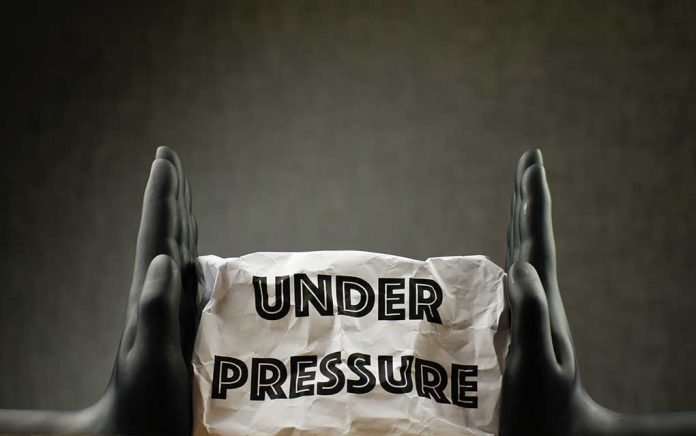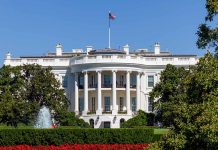
Justin Trudeau’s government faces a crisis as Finance Minister Chrystia Freeland resigns, intensifying calls for the Prime Minister to step down.
At a Glance
- Finance Minister Chrystia Freeland resigns, criticizing Trudeau’s economic management.
- 45 MPs sign letter demanding Trudeau’s resignation.
- Conservative Party leads in polls, raising possibility of early elections.
- Trudeau’s approval rating drops significantly amid economic concerns.
- Potential “no confidence” vote could trigger immediate election.
Freeland’s Departure Sparks Political Turmoil
Canadian Prime Minister Justin Trudeau’s government has been plunged into chaos following the sudden resignation of Finance Minister Chrystia Freeland. Her departure has highlighted deep rifts within the Liberal Party and intensified calls for Trudeau to step down from his leadership position.
Freeland’s resignation letter revealed significant disagreements with Trudeau over economic policy and the handling of potential tariffs from President-elect Donald Trump. In her farewell note, she emphasized the need for fiscal prudence in the face of looming economic challenges.
“For the last number of weeks, you and I have found ourselves at odds over the best path forward for Canada.” – Chrystia Freeland
Mounting Pressure on Trudeau
The political landscape in Canada has become increasingly fraught, with 45 Members of Parliament signing a letter demanding Trudeau’s resignation. Conservative Leader Pierre Poilievre has been vocal in his criticism of Trudeau’s leadership, arguing that the Prime Minister has lost control both domestically and abroad.
“The real consequences of yesterday’s clown show are playing out in tragedies right across this country.” – Pierre Poilievre
Trudeau’s approval ratings have plummeted amid concerns over high living costs and inflation. The Liberal Party’s recent loss in a British Columbia by-election has further eroded confidence in Trudeau’s leadership. Political analysts suggest that the best outcome for the Liberals in the next election may be to limit the Conservatives to a minority government.
Potential for Early Elections
The possibility of a “no confidence” vote in Parliament looms large, which could trigger an immediate election. The Liberal Party’s reliance on support from the New Democratic Party has diminished, increasing the likelihood of such a vote. Both Poilievre and Bloc Quebecois leader Yves-Francois Blanchet are advocating for an election in early 2025.
“My guess is that if another minister or two goes, he’s toast, he will be forced to resign.” – Robert Bothwell
While there is no immediate mechanism for the Liberal Party to force Trudeau out, the mounting pressure and potential for a no-confidence vote have created a precarious situation for the Prime Minister. If Trudeau were to resign, the Liberals would need to appoint an interim prime minister until elections are held.
Trudeau’s Response and Future Outlook
Despite the growing calls for his resignation, Trudeau has stated that he will not immediately step down. Instead, he has indicated that he will take time to reflect on recent events and reassess his vision for the country. However, with provincial leaders meeting to address the potential impact of Trump’s tariff threats and the Conservative Party leading in polls, Trudeau’s political future remains uncertain.
As the political crisis deepens, Canadians are left wondering about the stability of their government and the potential for significant changes in leadership. With the next federal election scheduled for no later than October 20, 2025, many are speculating whether an earlier vote will be called to address the current turmoil.
Sources:
- Canada’s prime minister faces calls to resign. Here’s what could happen next
- Canadian PM Justin Trudeau faces increasing calls to resign: ‘Lost control of everything’
- Trudeau in peril after spat over Trump threat sparks crisis










